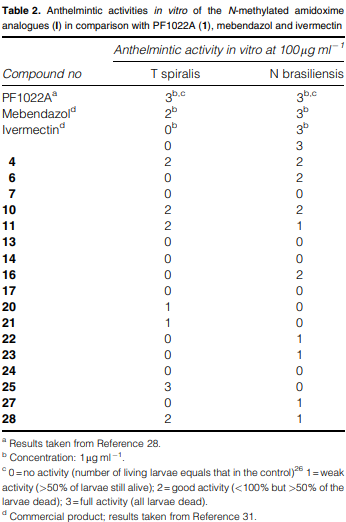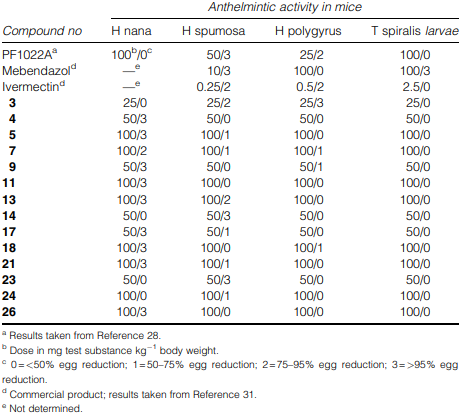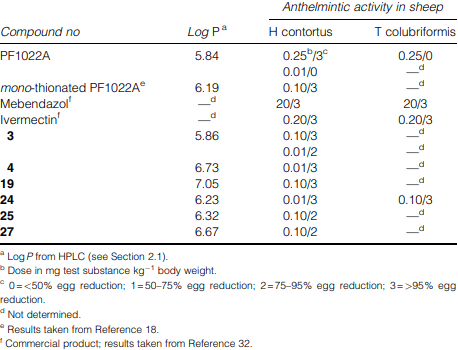Ivermectin
CAS number: 70288-86-7
Ivermectin is a semi-synthetic antiparasitic medication derived from avermectins, a class of highly-active broad-spectrum antiparasitic agents isolated from the fermentation products of Streptomyces avermitilis. Ivermectin itself is a mixture of two avermectins, comprising roughly 90% 5-O-demethyl-22,23-dihydroavermectin A1a (22,23-dihydroavermectin B1a) and 10% 5-O-demethyl-25-de(1-methylpropyl)-22,23-dihydro-25-(1-methylethyl)avermectin A1a (22,23-dihydroavermectin B1b). Ivermectin is mainly used in humans in the treatment of onchocerciasis, but may also be effective against other worm infestations (such as strongyloidiasis, ascariasis, trichuriasis and enterobiasis).
Related images

Anthelmintic activities in vitro of the N-methylated amidoxime analogues (I) in comparison with PF1022A (1), mebendazol and ivermectin

Anthelmintic activities of the N-methylated amidoxime analogues (I) in comparison with PF1022A (1), mebendazol and ivermectin

Anthelmintic activities and lipophilicities of the N-methylated amidoxime analogues (I) in comparison with PF1022A (1), mono-thionated PF1022A (2), mebendazol and ivermectin
Related Questions and Answers
A: Ivermectin was initially used against worms (excluding tapeworms) and later approved in 2012 for head lice infestations in patients 6 months of age. It is primarily used for treating intestinal strongyloidiasis from Strongyloides stercoralis, onchocerciasis from Onchocerca volvulus, and scabies from Sarcoptes scabiei. Ivermectin demonstrated the ability to induce an approximate 5000-fold reduction in SARS-CoV-2 RNA within two days in vitro. Its mechanism of action on SARS-CoV-2 RNA is unconfirmed, but its calculated binding affinity suggests a possible competitive binding to viral protease. Its dock score with COVID-19 protease was 8.7.